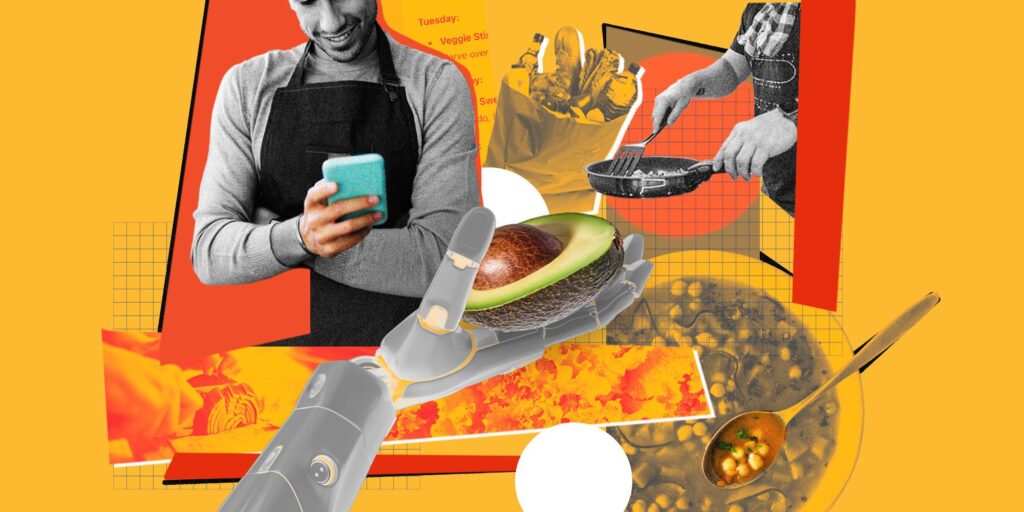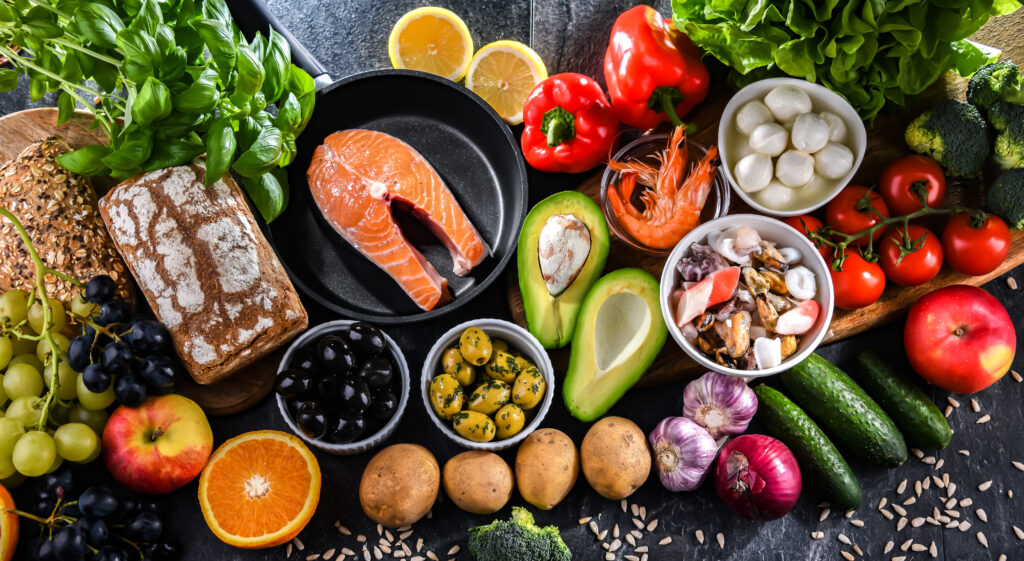BACK IN THE 1960s, the American nutritionist and author Adelle Davis coined what might be one of the most enduring pieces of dietary wisdom of the following decades: “Eat breakfast like a king, lunch like a prince and dinner like a pauper”. It’s pithy and memorable, sure. But science has since had relatively little to say about its validity.
However, the emerging field of chrononutrition is exploring the complex interactions between meal timing and our circadian system – the body’s internal ‘clock’.
What is chrononutrition?
According to Dr Alan Flanagan PhD, a nutrition scientist and lead researcher in the topic, our circadian system “regulates numerous physiological processes, including gastrointestinal function, hormone secretion, nutrient digestion, absorption and metabolism”. The goal, he says, is to help synchronise the signals from our external environment – including the food we eat – with our ‘internal biological timing’.

Your brain’s master clock is located in the hypothalamus, and it controls factors such as your body temperature and sleep-wake patterns over a predictable 24-hour cycle. You also have a ‘chronotype’, which refers to the individual variations in this pattern – the points during the day when you typically feel tired, energised or alert, which might be partly influenced by your social or work schedule. “Colloquially, people are often termed early birds or night owls,” says Dr Flanagan.
By better understanding the mechanics your inner workings, you can help to ensure you’re delivering the nutrients your body needs at the time it needs it most. Dr Flanagan answers your FAQs and gives you his takeaway tips.
Is it better to eat breakfast or not?
While skipping breakfast is sometimes correlated with obesity, there’s actually scant evidence of direct cause and effect. “Controlled trials such as the Big Breakfast Study have found identical weight loss over four weeks between a morning-loaded and evening-loaded diet, when both diets are matched for energy intake,’ says Dr Flanagan.
Still, Adelle Davis was right about some things. Dr Flanagan notes that there is strong evidence that glucose tolerance (how well we metabolise sugars) varies throughout the day, with better glucose tolerance during the early part of the day and diminished responses by the evening. If you’re managing type-2 diabetes, or blood sugar balance is a particular concern for you, it might be a smart idea to time any larger-proportioned meals for the morning.
What should you eat for breakfast?
A higher morning intake of both protein and carbohydrates can help you feel fuller throughout the day, potentially benefiting appetite regulation and weight loss. And if muscle is your MO, there are further reasons to add a scoop of whey to your overnight oats: research published in Cell Reports found that consuming protein at breakfast significantly boosts muscle growth and strength compared to filling up on the macro later in the day, due to cyclical fluctuations in protein absorption.

Does it really matter what time you eat dinner?
Our appetites naturally fluctuate throughout the day, so if self-regulation is an issue for you, it can help to time things accordingly. A recent lab study compared two calorie-matched eating schedules: one with meals consumed one, five and nine hours after wake time, and another with meals at five, nine and 13 hours. “The later meal schedule resulted in significantly elevated subjective hunger and appetite scores,” says Dr Flanagan. Our appetites tend to increase throughout the day, he says, with a peak at around 8pm. As a result, we may take longer to feel satisfied when we eat dinner later in the day – a fact to which anyway who’s ever made a late-night burger stop will likely attest.
If you’re a late-evening eater and consider yourself a bit of a night owl too, shifting that pattern might be easier read than done. Try moving your meals forward gradually, by 30 minutes at a time. This shift may be easier in the winter months: an analysis of meal timing in different European countries found natural discrepancies between northern and southern countries – with the earliest dinner-eaters in Norway (4pm) and the latest in Spain and Greece (9pm) – suggesting daylight hours have a role to play.
Is it good to eat on a nightshift?
When your schedule is out of synch with your biology, that presents additional challenges. Research has shown that long-term night work can increase the risk of metabolic illnesses.
“Ideally, shift workers would try to maintain a consistent meal pattern from day to day, including during nightshifts,” says Dr Flanagan. The ideal scenario would be to avoid eating overnight, he says, by fuelling up properly in the evening – although he concedes “this is not always practical”.
If your schedule forces you to eat late, Dr Flanagan points to a small but consistent body of research indicating that low-calorie, protein-rich meals and snacks, low in carbs and fats, may not be detrimental for glucose and fat metabolism. Something like a bowl of Greek yoghurt with some fruit might be sensible, he suggests.
This article originally appeared on Men’s Health UK.
Related:
Eating At This Time Raises Your Risk Of Heart Attacks And Diabetes















